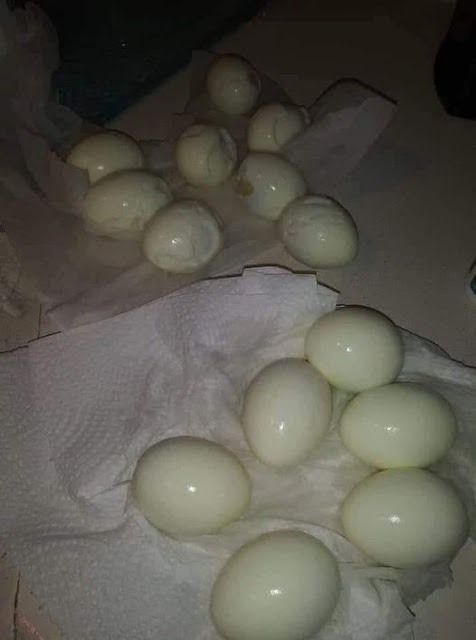ADVERTISEMENT
Sure! Here’s an article on how to achieve perfectly peeled hard-boiled eggs using smart techniques. I’ll break it down into sections and explain in detail how to ensure that the eggs peel effortlessly.
—
**A Smart Way for Hard-Boiled Eggs to Have Perfect Peels**
Hard-boiled eggs are a kitchen staple. Whether you are preparing them for breakfast, making egg salad, or incorporating them into various dishes, achieving the perfect hard-boiled egg is a simple but satisfying task. However, one common frustration when cooking hard-boiled eggs is the peeling process. Eggs that are difficult to peel can be a real headache, leaving bits of egg white stuck to the shell, which detracts from their presentation and texture. Fortunately, there are several methods you can use to guarantee your hard-boiled eggs come out perfectly peeled every time. In this article, we will explore smart ways to cook hard-boiled eggs that guarantee flawless peeling.
### 1. **Understanding the Science of Egg Peeling**
Before diving into the methods for perfect hard-boiled eggs, it’s important to understand what makes peeling eggs difficult in the first place. The peeling process has a lot to do with the chemical structure of the egg and its freshness. Fresh eggs tend to be more difficult to peel because the pH level of the egg white (albumen) is low. This causes the proteins in the egg white to bond more strongly to the inner membrane of the shell. Over time, as eggs age, the pH level increases, which makes the proteins in the egg white bond less tightly to the shell’s inner membrane, making peeling much easier.
Thus, one of the key factors that influence the ease of peeling hard-boiled eggs is their age. Older eggs are easier to peel than fresh ones. This is why some of the methods we’ll discuss are geared toward replicating the results of using older eggs, even if your eggs are fresh.
### 2. **Use Older Eggs for Easier Peeling**
As mentioned earlier, older eggs peel much more easily than fresh ones. If you have the time, buy eggs and let them sit in the refrigerator for 5 to 10 days before boiling. This will give the egg whites time to loosen from the membrane, ensuring an easier peel once they are cooked.
If you’re in a pinch and don’t have older eggs on hand, don’t worry! There are still several tricks you can use to achieve perfect peeling, even with fresh eggs.
### 3. **The Boiling Method: High Heat vs. Low Heat**
One of the most common ways to boil eggs is by placing them in a pot of water, bringing the water to a boil, and then reducing the heat to let the eggs cook. However, there are several variations of this method, and the temperature and duration of boiling are critical factors in determining how easy your eggs will peel.
#### The High Heat Method
– Place eggs in a saucepan and cover them with cold water by about 1-2 inches.
– Bring the water to a rapid boil over high heat.
– Once the water has boiled, turn off the heat and cover the saucepan with a lid.
– Let the eggs sit for 9 to 12 minutes, depending on the size of the eggs and how well-done you want them.
– After the resting time, immediately transfer the eggs to an ice bath or run them under cold water to stop the cooking process.
While this method works well for many people, some might still find their eggs a bit tricky to peel. This can be especially true for eggs that are fresh. To solve this problem, you can try the “low heat method,” which some cooks find even more effective.
The Low Heat Method (Steam-Cooking)
Another smart way to achieve perfectly peeled eggs is to use steam instead of boiling water. Steaming eggs helps preserve the delicate texture of the egg whites and may make peeling easier because the steam cooks the eggs evenly without them coming into direct contact with the boiling water.
For Complete Cooking STEPS Please Head On Over To Next Page Or Open button (>) and don’t forget to SHARE with your Facebook friends
